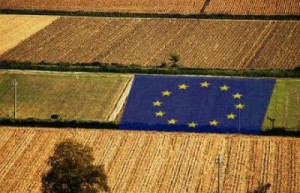
Farmers could receive lower direct payments to finance EU policies for research. This is a possibility suggested by the current Cypriot EU presidency, while seeking a delicate balance in the negotiations on the next EU financial framework for the period 2014-2020.
This proposal is contained in a working paper dated September 18, which was presented and discussed informally by EU ministers some days later. This is, probably, the text the Commissioner for Agriculture, Dacian Cioloş, referred to, when a few days ago he said he was “concerned about some ideas that are circulating in the discussions on the financial perspectives of the EU.”
The Presidency document indicates, formally and for the first time, a planned reduction of direct payments (since 2015) compared with the figures proposed by the Commission, amounting to 281 billion for the whole period and already including a cut of 12.5% (18% for Italy).
The percentage of cuts is not specified: a blank space in the text leaves all the negotiation hypotheses open, although some rumors circulating in Brussels and relaunched in recent days by the French cereal growers association talk about a Franco-German agreement on a 6% cut and an allocation of resulting savings to EU policies for research.
Until now, direct payments, representing the core of agricultural expenditure, has remained immune from the possibility of further reductions. The Commissioner for Financial Programming and the Budget, Janusz Lewandowski, to remedy (and respond to French requests to safeguard agricultural expenditure), suggested a solution which might be sensational for farmers: the transfer of funds from rural development to direct payments. This is the opposite of the policies that the European Commission has promoted so far, through the transfer of money, partly mandatory, from the first to the second pillar (the so-called “modulation”).
In this scenario and worried for the consequences of further cuts to the CAP budget, the Italian Minister for Agriculture, Mario Catania, flew recently in Brussels to meet the Commissioner Cioloş. He was there to prepare the ground for the Italian government with reference to the extraordinary summit of the European Council about the 2007-2013 budget on 22 and 23 November. In particular, he reminded the Commission of the data of Italian “anomaly”: a negative balance of 5 € billion annually and a share of the British “rebate” (the check which the UK still receives from Brussels as “financial correction”) that amounts to 718 € million, almost 20% of total. In front of these figures, the Commission has recognized that there is “an Italian problem” in terms of balance between revenues and expenditure. It has also added, as the Italian Minister explained at the end of the meeting, that “there is the need to find solutions that can be only found in big-spending policies, starting from agricultural policy.” However, the final decision, provided that a common agreement will be reached, is going to be taken at the end of November by the Heads of State and Government in a meeting which could definitively confirm the decline of the importance of the European Commission in the new political hierarchies.
References
Council of the European Union, Multiannual Financial Framework (2014-2020) – Negotiating box, Brussels, 18 September 2012, 13620/12, CADREFIN 387, POLGEN 147. Link: http://register.consilium.europa.eu/pdf/en/12/st13/st13620.en12.pdf
Council of the European Union, Press Release, 3187th Council meeting, General Affairs, Brussels, 24 September 2012, 14070/12, PRESSE 391, PR CO 49.
Link: http://www.consilium.europa.eu/uedocs/cms_data/docs/pressdata/EN/genaff/132546.pdf
Romeo A., “Nuovi tagli per gli aiuti alla PAC”, IlSole24Ore, 6 Ottobre 2012. Link: http://www.ilsole24ore.com/art/impresa-e-territori/2012-10-10/nuovi-tagli-aiuti-122522.shtml?uuid=AbVFbJrG




